7,000 calories a day and race drills, but there's still room for fun: How pro training camps will differ from your own - and what's exactly the same
Heading away this spring for a week of sunny riding? Georgia Bullard quizzes the experts on how your experience will differ from that of the pros
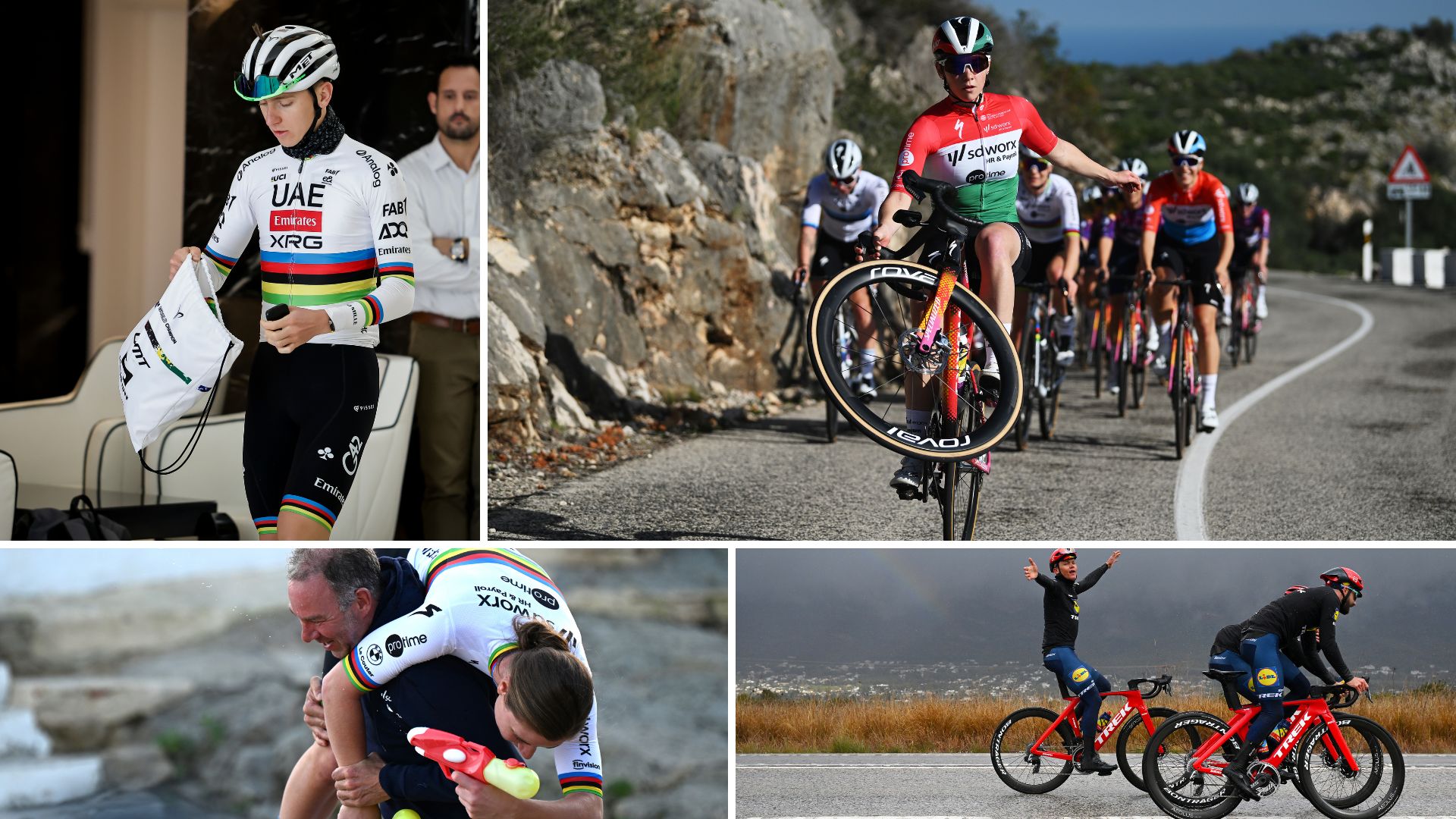
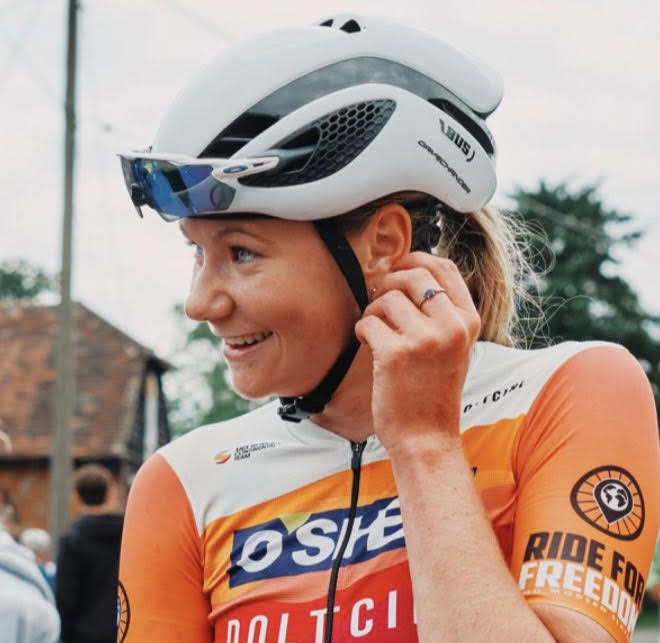
It’s training camp season. Maybe you’re gearing up for your annual trip with cycling buddies, going to explore somewhere new by bike, or planning a specific training week to hit those early season races and sportives flying. Pro riders are also setting off on their pre-season training camps, too.
Will their experience be completely different to your own? Probably. But, some elements of what the pros do differently, and, what’s exactly the same, may surprise you.
Difference 1: The expense and admin

Amateurs will be footing the bill for their own accommodation
For many amateur cyclists a cycling trip or camp abroad often requires a lot of pre-planning, and unfortunately comes with a price tag. Flights, accommodation and bike hire or luggage costs all quickly add up meaning that many have to be savvy with bookings and picking the right time to go. For the pros, it’s a completely different story. Obviously, training camps constitute a ‘work trip’. Whilst the riders don’t get to choose the location or the timing of the camp, everything from the second they leave their house is usually fully subsidised. If only all work trips included riding your bike in the sun for six hours a day.
Difference 2: The training

The pro camps have become much more race specific in recent years
It's no surprise that the average amateur will have very different goals to the pros - but the training undertaken for the latter group has changed in recent years.
“Traditionally, (for pro riders) these camps may have been periods of much greater training load, but more recently they are becoming more race specific. They are great times to work on specific race tactics, nutritional interventions, physiological testing and recovery strategies, Explains Head of Sports Science at Holohan Coaching, Harrison Hunter.
“For amateur cyclists, training camps are typically periods of time where they can forget about other life commitments, and therefore have full focus on the bike. These periods will often be much higher volume than they are used to as they’re generally able to cope with the extra demands in acute stages, if followed by appropriate rest and recovery days on return,” he says.
This dedicated time can yield excellent results for amateurs, “if a rider is used to slogging away in an evening or early morning before work, having the luxury of increased sleep and recovery, as well as some warmer weather can be the difference,” notes Hunter.
Get The Leadout Newsletter
The latest race content, interviews, features, reviews and expert buying guides, direct to your inbox!
Difference 3: The company
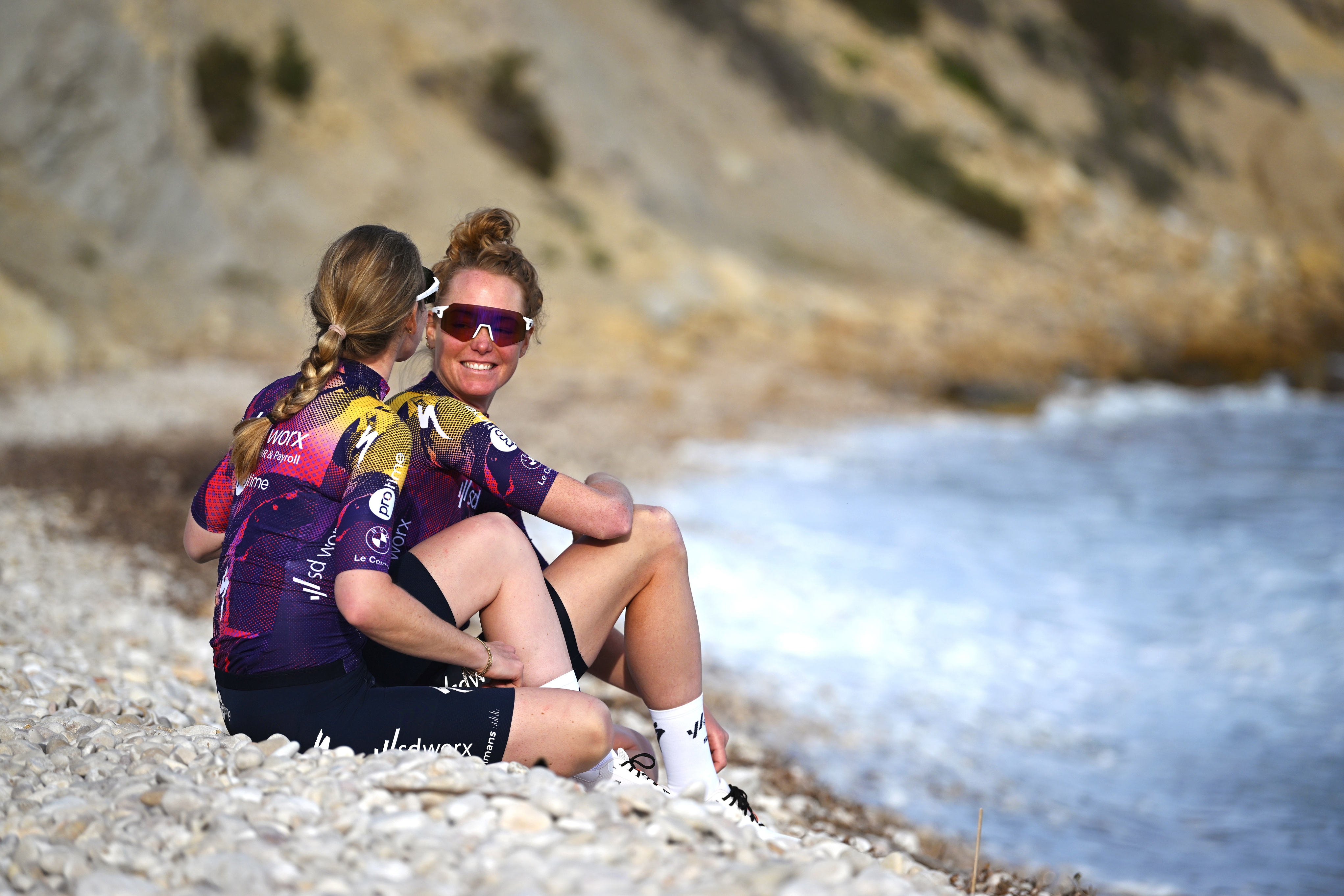
The pros won't choose their riding buddies, but, it doesn't mean they can't have fun
“For pro teams and riders, training camps are a key part of their annual training plans. They are often planned around key parts of the season or goal races, and riders are generally selected depending on provisional race squads in order to maximise time riding together,” explains Hunter.
Have you ever thought about the strength of the people you are going on your camp with? For amateur riders, riding partners are mostly selected based on friendship and availability. Whilst it’s nice if you can ride together at a similar level, it’s not a decisive factor in pre-camp planning.
Difference 4: The packing and preparation
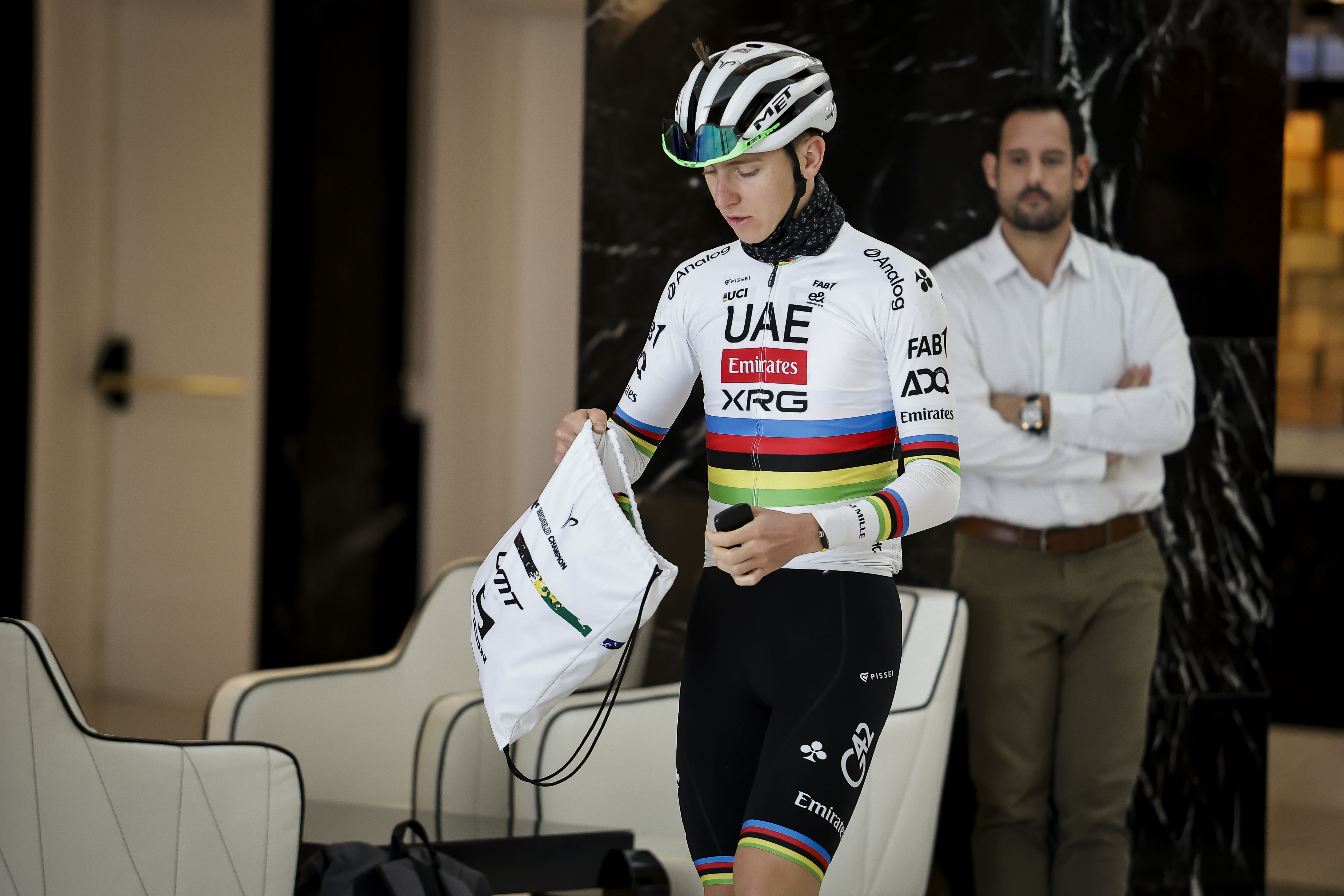
Pro riders won't need to work hard to plan their training or off-bike wardrobe
You might spend weeks preparing your things for your trip away. Many may get their bike serviced and ready to avoid having to spend a fortune in a tourist driven bike shop if something goes wrong, or stock up on spare tubes, tyres and tools to take away with them. Maybe you also need to update your cycling wardrobe before the trip if your best bib shorts are getting a bit old, or could you do with another rain jacket. Pro riders also have to think about what they’re going to need for their camps. However, their extensive range of team kit and casual clothing usually makes it a bit easier. Team regulation clothing is mandatory, so it’s unlikely they are debating which of their favourite jerseys to take with them. They will also have a number of mechanics waiting for them when they arrive, taking the stress out of needing to have spares for every eventuality.
Difference 5: Down time
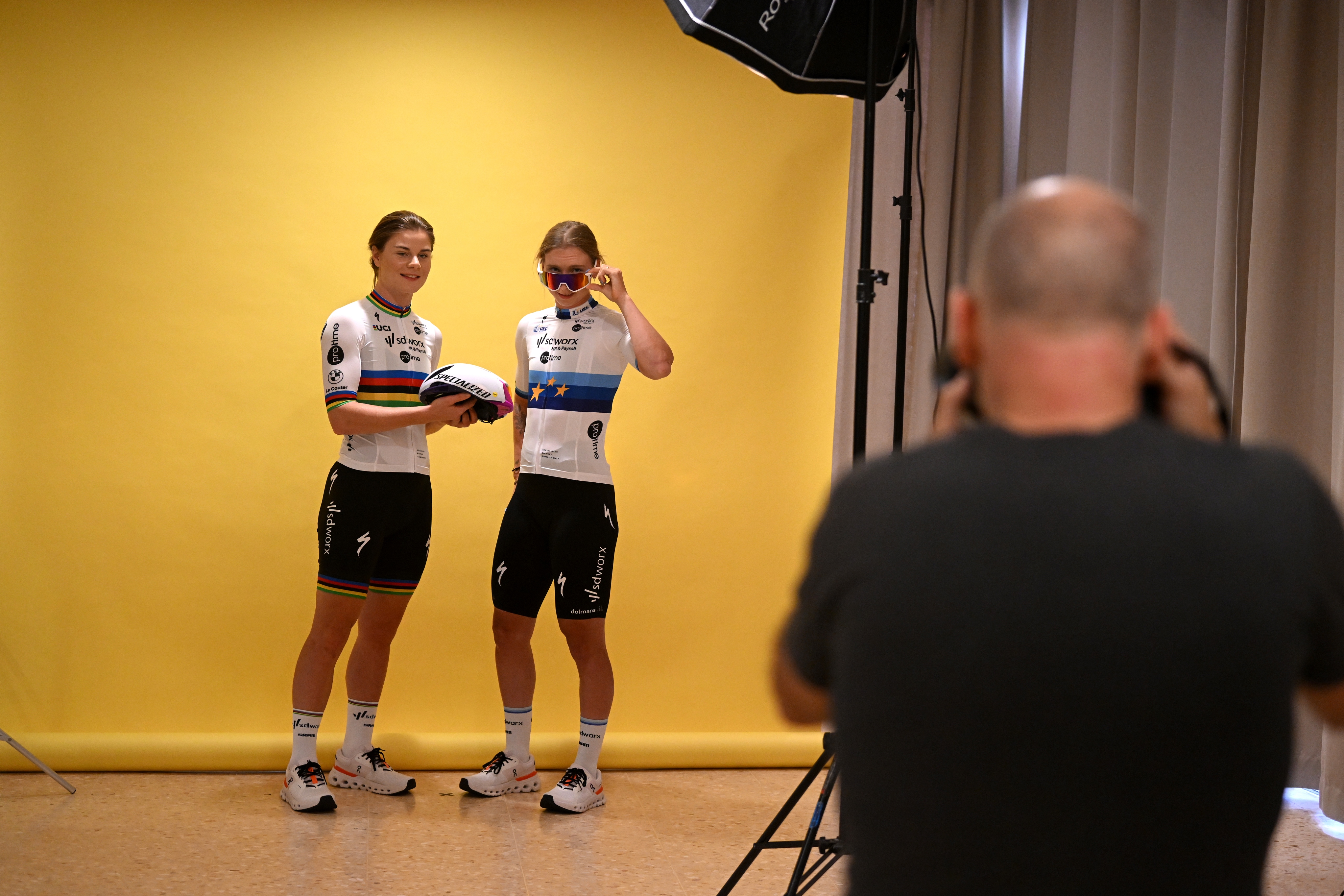
Amateurs are unlikely to be called upon for media duties
Rest and recovery are vital to good performance on the bike; for the pro riders this isn’t taken lightly during a training camp. Post ride massages every day are a known ritual, followed by as little activity as possible. At a stretch riders may take a short walk into the local town on a rest day, or engage in some media work within the team. Off-season camps may vary slightly, with team building activities away from the bike often included. Pre-season and pre-race camps are slightly more regimented. So how would you feel about the more ‘monk’ style camp? Maybe you do go away to purely focus on training. Many amateurs may see it as an opportunity to mix in a bit of a holiday whilst they're away, seeing as they are footing the bill. As an amateur cyclist you may have the morning or most of the day focused on cycling, but then take to the local town, beach or bars to explore!
Difference 6: Diet
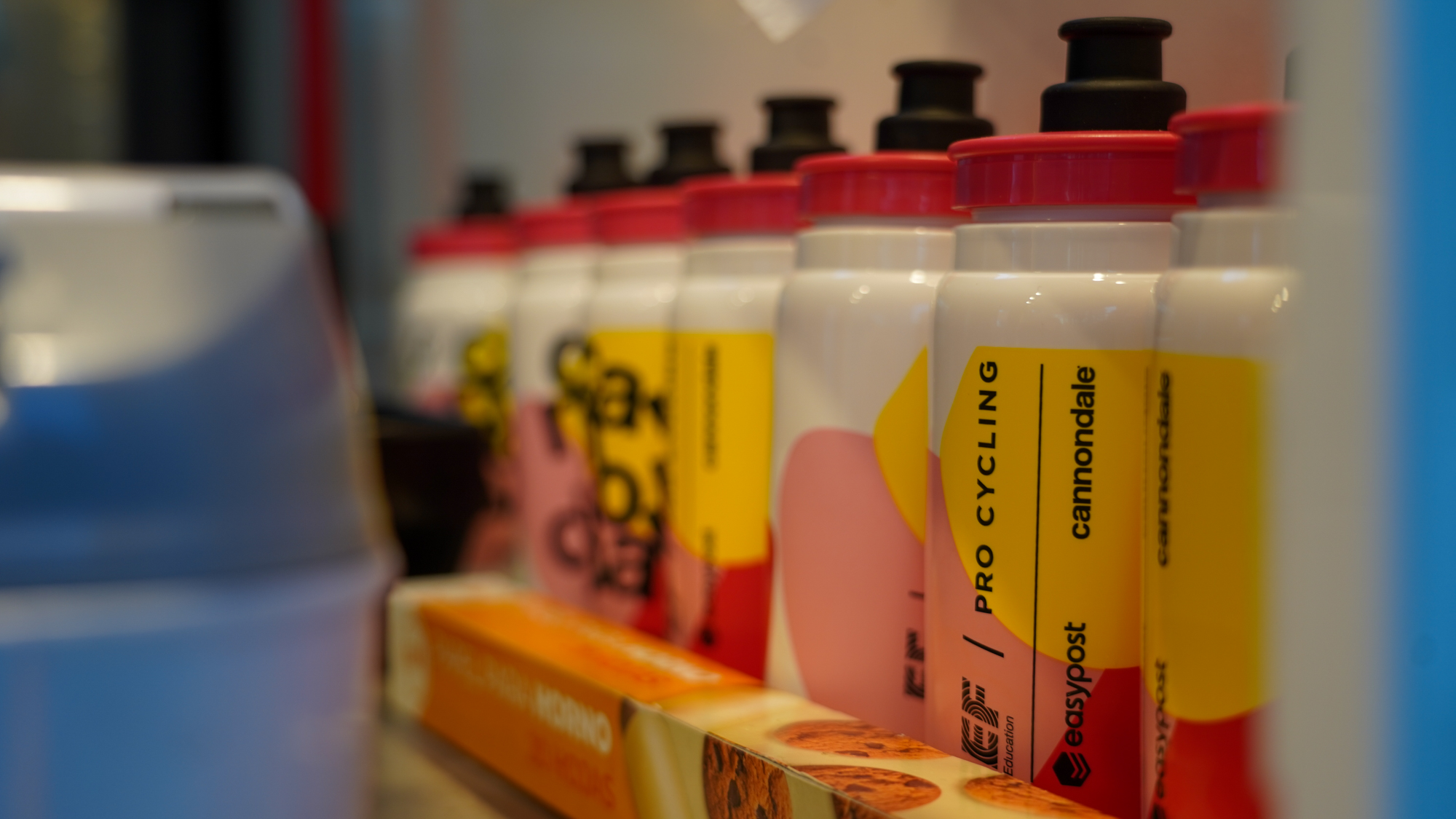
Pro fuelling will be taken care of
Every rider knows that the key to a successful training camp is fueling it correctly, whatever level you ride or compete at. For pro riders, a key goal of the time away may be “to practice race nutrition and fueling strategies”, says Advanced Sports Dietitian, Dr Gemma Samson. Dr Sampson has worked with some of the best in the sport, supporting the likes of DSM-Firmenich PostNL, Team Jayco-Alula/Liv Alula and Team Dimension Data, as well as a number of amateur training camps and retreats.
“When people are on a training camp they are doing large volumes of training. Their needs substantially increase, whether they are amateur or pro. If I take my pro athletes for example, we see them needing between 5000-7000 calories a day to fuel their camps, with amateur riders requiring slightly less. A typical breakfast for the pro riders would be 150 grams of oats, 100 grams of bread, an omelette, plus coffee and jams. That’s a very standard breakfast. That would be for a more steady-state lower intensity ride,” explains Dr Sampson.
The main difference, she described, was the actual preparation of the food. “Pro training camps will usually have a team chef preparing all the meals, meaning that the riders are getting the exact amount of carbohydrates, proteins and vitamins and minerals they need… whilst amateur riders may be actually preparing the food themselves, or going out to dinner in the local area.”
Don’t fear though! According to Dr Sampson, there is absolutely nothing wrong with a pizza and beer to fuel your training camp. “All foods can fit!”, she says. Her one tip? If you're planning a meal out after a big day in the saddle, don’t wait until 7/8pm for your dinner; eating sooner rather than later is much more beneficial to your training for the coming days and can aid the recovery process more effectively.
Similarity 1: Location

Calpe remains a go-to for pros and amateurs alike - though - you may choose to go later than January unlike this 2024 Lidl-Trek camp
Who doesn’t like riding in warm weather, or on smooth roads? One thing that doesn’t differ between professional and amateur training camps are the common locations of choice. Teams will usually select locations that are dry, mountainous and European. This makes for better and more consistent training in the winter and spring months, and a European camp will on the most part mean a couple of hours flight for the majority of riders. Most amateur and recreational riders will opt for the same locations for similar reasons (and maybe because they might get a glimpse of their favourite rider out training one day). Mallorca, the Alicante region of Calpe, Denia and Altea, Tenerife and Lanzarote are all big favourites.
Similarity 2: Enjoyment
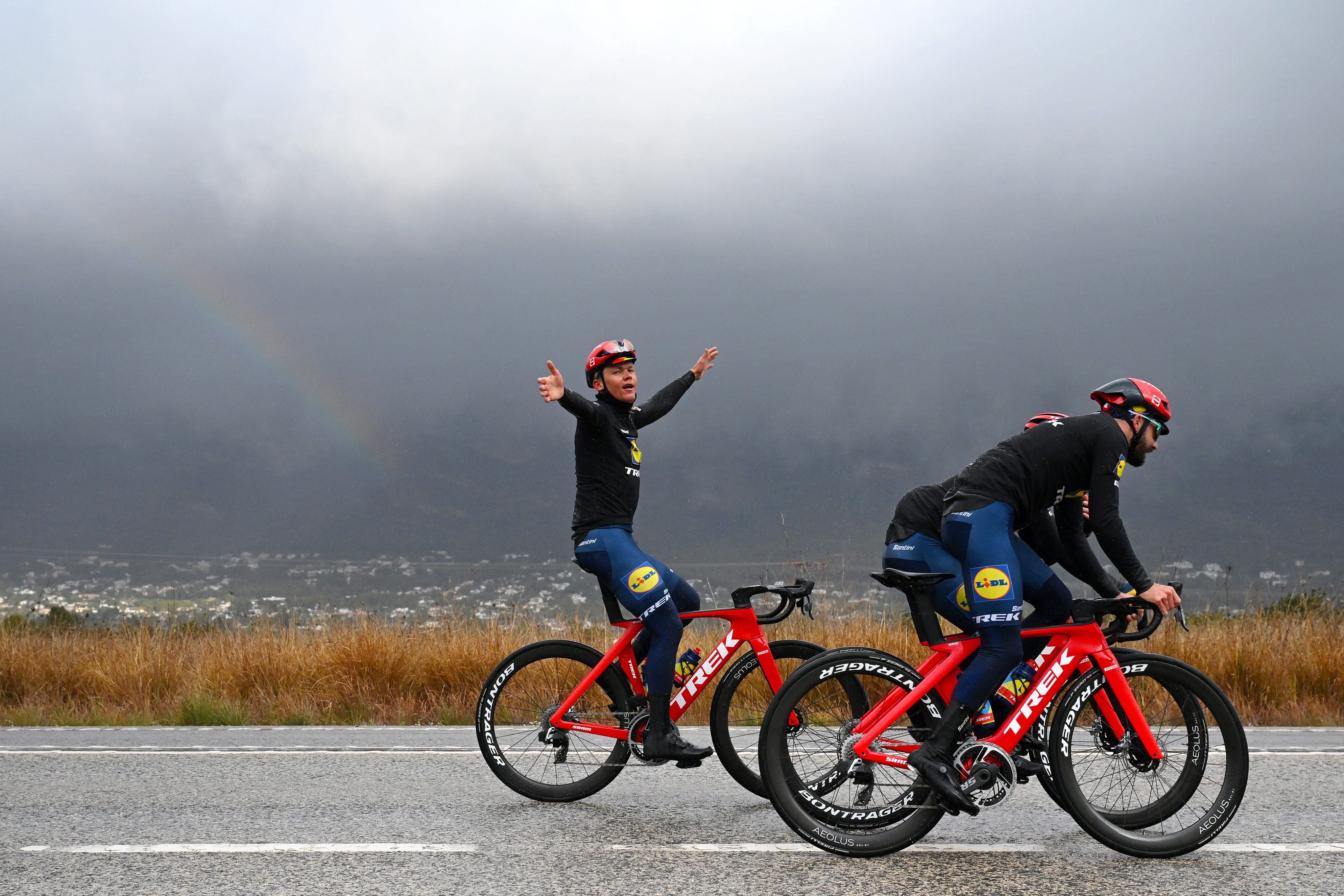
Pro riders are still allowed to have fun - and - they'll still experience whatever the weather has to throw at them
For any cyclist, there are few things that come close to riding your bike in the sun with mates, and if you can improve whilst doing so, it’s a win-win. Whilst amateurs may cross over their riding trip with a holiday, training camps are something that pro riders look forward to as well, especially in the winter months. Maybe it’s the idea of exploring somewhere new by bike, the opportunity to meet new people and spend time with friends, or simply escape the bleakness of the north European winters; everyone really does love a training camp.
“I really enjoy spending time with my teammates and getting better together! I love seeing everyone in a relaxed environment and getting to know everybody on and off the bike,” confirms Olympic silver medalist and pro rider for Visma-Lease a bike, Anna Henderson.
Similarity 3: Personal best's all-round

The pros will be chasing PBs, as well
We all want to be better cyclists, and if you’re returning to somewhere you have previously ridden the chances are you’re going to want to be faster than your previous self. This goes for both pros, and amateurs. Many professional team training camps will feature some kind of power testing, or time trial efforts. They may often use a known climb, or road for these. Without a doubt, the pros will be wanting to beat their previous metrics or times. Maybe you’re the same - wanting to get as close as you can to that KOM or QOM, beat your time up Sa Colabra from your last trip or set a new PB for your FTP test. Whilst your PB chasing may be less specific than on a professional camp, everyone has in common wanting to be better than before.
So, for your next training camp will you adopt the professional style or stick to a more relaxed and social cycling escapade? Either way, it’s undisputed that training camps are a great place to work hard, have fun and simply enjoy riding your bicycle, no matter the level of rider you are.

Thank you for reading 20 articles this month* Join now for unlimited access
Enjoy your first month for just £1 / $1 / €1
*Read 5 free articles per month without a subscription

Join now for unlimited access
Try first month for just £1 / $1 / €1
Georgia Bullard is a former UCI Continental cyclist, from Cambridgeshire (UK). She raced at this level for four years, and spent one year with a Spanish/ Bahrain registered UCI team, where she became fluent in cafe Spanish. Having stepped down from Continental level racing to focus on a new chapter in her life, she is still enjoying racing bikes, for domestic team the London Academy, who promote and champion women racing their bikes in the U.K.
You must confirm your public display name before commenting
Please logout and then login again, you will then be prompted to enter your display name.
-
 'Not bad for a sprinter' - Jason Kenny runs London Marathon in impressive time
'Not bad for a sprinter' - Jason Kenny runs London Marathon in impressive timeSeven-time Olympic gold medallist made marathon debut alongside former GB team-mate Becky James
By Tom Davidson
-
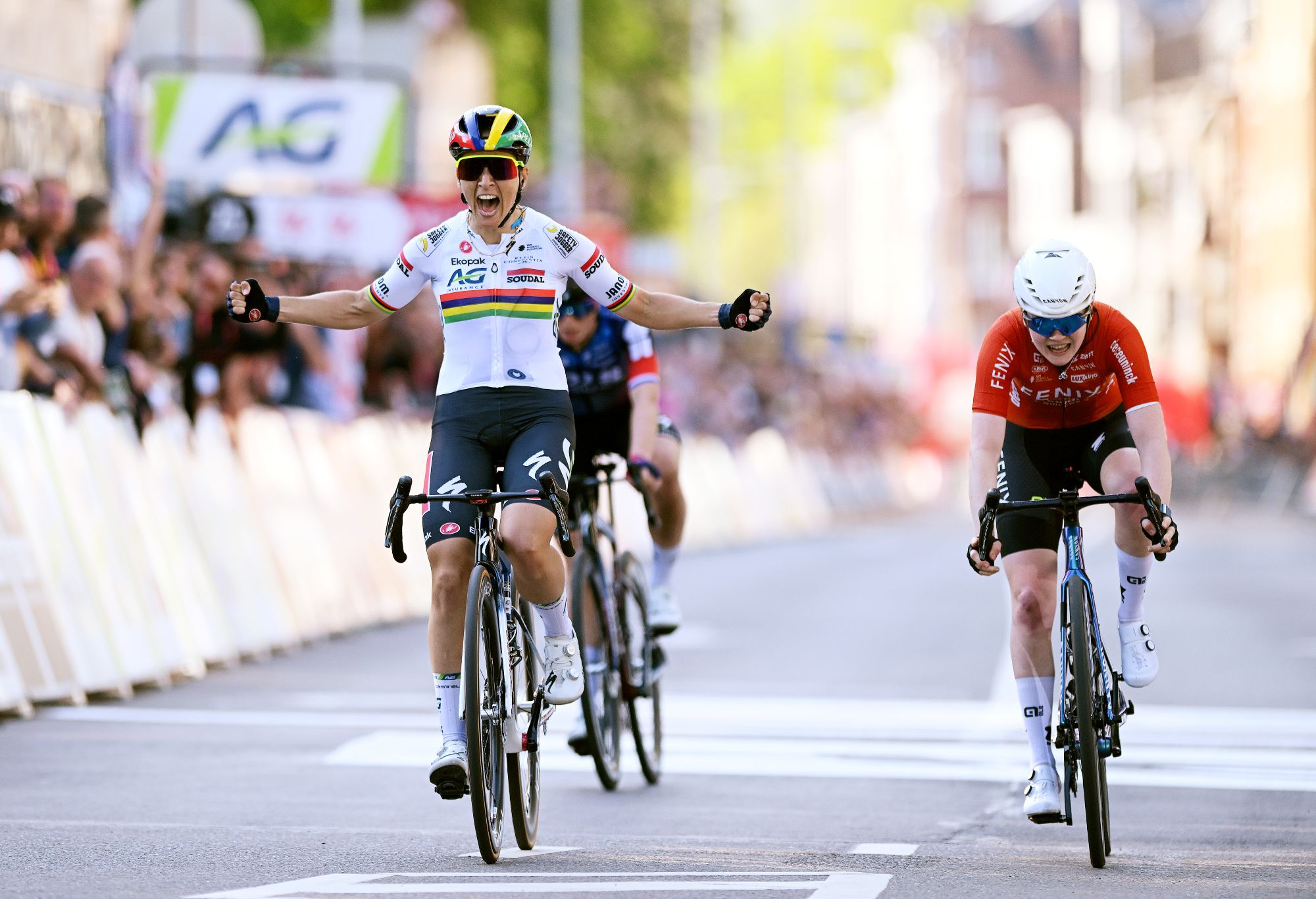 Kim Le Court outsprints Demi Vollering and Puck Pieterse to take Liège-Bastogne-Liège Femmes victory
Kim Le Court outsprints Demi Vollering and Puck Pieterse to take Liège-Bastogne-Liège Femmes victoryMauritian edges out former Tour de France Femmes winner and La Flèche Wallonne champion to take unexpected win
By Tom Thewlis